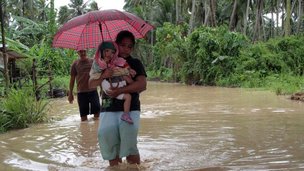Sivakasi town in the southern Indian state of Tamil Nadu is known as the country's fireworks capital. But frequent accidents have blotted the town's image.
The 5
th September blaze at firework factory that claimed 38 lives was the worst in recent memory.
In some of the biggest factory fires, about 40 people died in 2009, 30 in 2001 and more than 60 in 1991. The list of casualties in smaller mishaps is much longer.
But more than 700,000 workers of Sivakasi have no other option but to depend on one of the most hazardous industries for their livelihood.
About 20-25 workers die each year in fire accidents in this industry which boasts of an estimated annual turnover of more than $365m (£225m).
India is the second biggest producer of fireworks after
China and, manufacturers say, almost all of it is for domestic consumption.
Sivakasi - also known for its matchbox and printing industries - contributes more than 90% to
India's overall fireworks production.
Painful scars
But those who work in the industry carry painful scars - a broken leg or skull, or a hand burnt by explosives, and many here complain of chronic respiratory problems.
"In the last 12 months, before this accident, 22 workers lost their lives and 50 were injured," says Dr M Kathiresan, chief medical officer at the local government hospital.
The hospital has a shortage of staff and equipment and has no supply of morphine, the standard pain relief drug for burn victims.
After a brief shutdown following the 5 September accident, the factories have reopened and the workers are back.
"We are scared, but what else do we do," said Pummeraj, who is recuperating at home with extensive burns on his body.
The industry is criticised for observing poor safety standards and paying as low as $3 (£1.85) a day to workers.
The industry rejects the charges, saying it contributes by running schools for the workers' children and providing employment.













